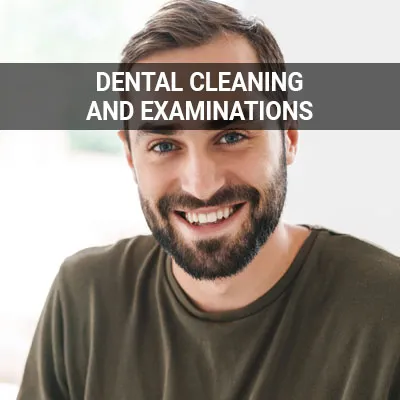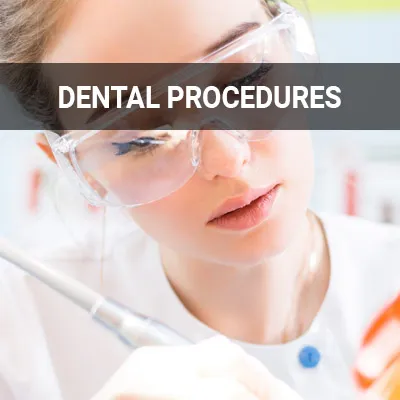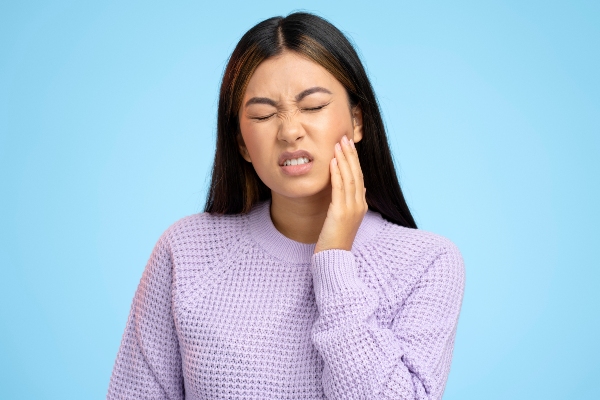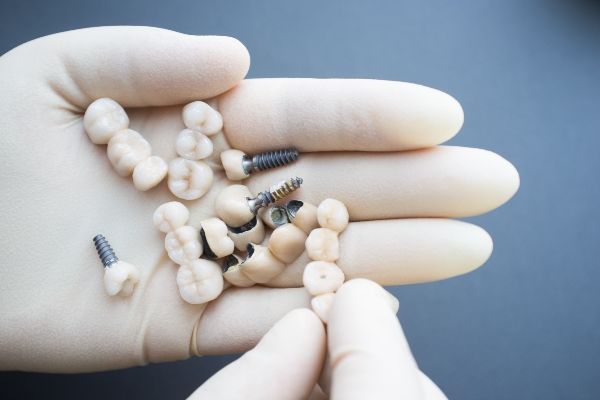Oral Hygiene Basics Downey, CA
Understanding oral hygiene basics allow people to better care for their teeth. However, the basics extend beyond the teeth — they pertain to the entirety of the mouth, including the gums, cheeks, and tongue. Oral health is critical to the body's overall health.
Starting good oral hygiene habits early in life can set everyone up for a lifetime of not only healthy smiles but also healthy bodies. To get started with an oral hygiene routine, contact our Valley Family Dental Group team in Downey at (562) 450-1257 to schedule an appointment.
The Importance of Good Oral Hygiene
The teeth are connected to the jaw bone in the face through the tooth's roots. These roots are deeply ingrained in the bone to provide structure and strength to the mouth, which is important for biting, chewing, and speaking. Without an oral hygiene routine, the teeth risk the buildup of bacteria, otherwise known as tartar and plaque. This appears as a yellowish buildup on the teeth around the gum line.
Over time, if someone does not brush, floss, and rinse at home regularly and maintain their regular dental checkups, this buildup can start to affect the smile. If left alone, the bacteria can get beneath the gums and create dental pockets. These pockets occur when the gum tissue starts to pull away from the teeth. This may also cause gum recession, which may eventually expose the tooth roots. If the bacteria have access to the roots beneath the gum line, they may gain access to the body's bloodstream.
Once the bacteria can enter the bloodstream, the entire body may be at risk. Starting and following an oral hygiene routine will help prevent the buildup of bacteria and plaque on the teeth and keep the body safe. To protect the health of the smile is to protect the overall health of the body.
“To protect the health of the smile is to protect the overall health of the body.”
Helping Family Members With Oral Hygiene
Since oral health can affect body health, it is important to teach children and others about oral hygiene. Someone should talk to family members about the importance of dental care. If any family member has anxiety about visiting the dentist, speak to the dental team about options to make the experience less intimidating. Either way, every member of the family should learn about oral hygiene and what they can do to take care of their smile.
Children and adults should have similar oral hygiene routines. There is a common misconception that a child's oral health care is different or perhaps not as important since their baby teeth will fall out. Even though baby teeth are replaced by larger adult teeth, they are still connected to the jaw bone in the same way. With children, this buildup on baby teeth can weaken their adult teeth for the rest of their lives, putting them at a higher risk of decay and disease later. This is why dental professionals recommend that children start visiting their dentist regularly from an early age.
No matter the age, everyone should prioritize oral health and establish an oral hygiene routine to keep themselves healthy. As they age, however, their smile may indeed have different needs. Along the way, they will have the help and guidance of our dental team, so they should be open with them and discuss their concerns.
“If any family member has anxiety about visiting the dentist, speak to the dental team about options to make the experience less intimidating.”
What to Include in a Dental Care Routine
A dental care routine will depend on the individual's current oral health needs, but in general, most routines should include the following:
Brushing
Everyone should brush their teeth twice a day with a dentist-recommended toothbrush and toothpaste. The right toothbrush should have soft bristles to prevent damage to the gums and tooth enamel. When brushing, use a small, pea-sized amount of toothpaste and move the brush against the teeth in a gentle circular motion. Move the toothbrush along the rows of the teeth at a 45-degree angle to brush at the gum line as well. Dental professionals recommend brushing for about two minutes. Make sure to get the top and bottom rows, as well as all surfaces of the teeth.
Flossing
After brushing the surface of the teeth, everyone needs to floss to clean the spaces between their teeth. Flossing should be done at least once a day to remove anything that may have gotten stuck between the teeth and reduce the possibility of buildup. To floss, hold a piece of dental floss tightly between the hands with the thumb and index finger. Gently slide the floss up and down between the teeth, curving it at the base of each tooth to get beneath the gum line.
Rinsing
After flossing, everyone should rinse with a dentist-approved mouthwash. Most mouthwashes will contain a small amount of fluoride to help keep the teeth healthy between regular dental checkups. Depending on the circumstances, the dentist may make a recommendation. Some people may need a mouthwash to help with bad breath, dry mouth, or gum disease. To rinse, follow the guidelines on the mouthwash bottle. Typically this means using a small amount of mouthwash poured into a clean cup to swish around the mouth for about a minute before spitting it out.
“A dental care routine will depend on current oral health needs.”
Check out what others are saying about our dental services on Yelp: Oral Hygiene Basics in Downey, CA
How to Keep the Smile Healthy and Prevent Tooth Decay
Following a dental hygiene routine with at-home care and regular dental checkups will help keep the smile healthy and prevent tooth decay, but other things can be done as well. Certain foods and drinks, such as sodas and sugary sweets, can put the teeth at risk. The ingredients in these food items can attack the enamel on the teeth and weaken it, making them more susceptible to bacteria and decay.
Rather than eating and drinking sugary or acidic substances, everyone should try things like cheese, fruits, vegetables, and green and black teas. Cheese can combat erosion of the enamel, high-fiber fruits and vegetables can stimulate saliva production to help remove particles from the teeth, and certain teas combat bacteria that cause plaque. Plus, these healthy food items are good for the body, too, so while they are protecting the smile from tooth decay, they can give the body the nutrition it deserves.
“Following a dental hygiene routine with at-home care and regular dental checkups will help you keep the smile healthy and prevent tooth decay.”
Questions Answered on This Page
Q. Why is good oral hygiene important?
Q. Why is it important to educate the family about oral healthcare?
Q. What should a home oral care routine include?
Q. How can a person's diet help with tooth decay?
Q. How does one maintain a healthy smile?
People Also Ask
Q. How often should someone have a dental checkup?
Q. What happens during a dental cleaning?
Q. Why is it important to find the right general dentist?
Q. Am I at high risk for developing oral cancer?
Health Practices for a Healthy Smile
If the goal is to have a healthy smile for life, then there are a number of things anyone can do to achieve that goal. The first and quite possibly most important thing to do is to stay in touch with the dental team. The dental professionals on this team will come to know each individual and their smile over time. They can provide guidance as the mouth ages and changes. To build and maintain this connection, regular dental checkups are important.
Dental checkups are normally recommended every six months, though some individuals may need them more often if they have a history of oral health concerns or gum disease. Between checkups, everyone should continue their at-home oral hygiene routine. While a checkup is a great way to remove the buildup of plaque and polish the teeth to protect them from bacteria, everyone needs to remove particles and bacteria daily to keep their smile healthy.
A daily routine should include brushing, flossing, and rinsing with a mouthwash. The dentist may also recommend different or additional steps depending on the smile's health. Additional recommendations may include:
- Drinking fluoridated water
- Quitting smoking and other tobacco products
- Limiting alcoholic, caffeinated or sugary drinks
- Controlling other diseases that may affect the teeth
- Deep cleaning
“While a checkup is a great way to remove the buildup of plaque and polish the teeth to protect them from bacteria, everyone needs to remove particles and bacteria daily to keep their smile healthy.”
Frequently Asked Questions
Q. Why is oral hygiene important?
A. Aside from being one of the first things people notice about others, the smile is important to the body's overall health. Maintaining oral hygiene is important because it helps protect the body from disease. By keeping the smile healthy and maintaining regular dental checkups, everyone can keep their bodies healthier.
Q. Is oral care important for children?
A. There is a common misconception that taking care of a child's baby teeth is not important. After all, they are going to fall out at some point. However, the way that a child's baby teeth are cared for sets the stage for the future of their oral health. Oral care is important for children to help set them up for a lifetime of healthy smiles.
Q. What should be included in a dental care routine?
A. Each individual may have some variation in their dental care routine, depending on their smile's unique needs. In general, however, there are some basic steps that everyone should take to keep their smile healthy. A good dental care routine includes brushing at least twice a day, flossing at least once a day, rinsing with a dentist-approved mouthwash once a day, and maintaining regular dental checkups.
Q. What is a dental checkup?
A. A dental checkup can also be called a dental cleaning, as that is the dental professional's main focus. During the checkup, the dental professional will check the mouth and teeth to assess their condition and clean the teeth. Cleaning the teeth involves removing the buildup of bacteria from the surface of the teeth to protect them from decay or disease.
Q. How can anyone keep their smile healthy?
A. Having a healthy smile sometimes means making minor life changes. Many times, oral health care concerns start with habits that have negative consequences for the teeth, such as smoking or drinking too much coffee or tea. Small changes, such as quitting smoking or limiting the intake of darker beverages, can help keep the teeth cleaner and healthier. Most importantly, however, to keep the smile healthy everyone should maintain an at-home oral care routine and see their dentist regularly.
Q. Are dental cleanings and deep cleanings different?
A. Yes, dental cleanings and deep cleanings are slightly different, but they are actually very similar. At a dental cleaning, one can expect the dental professional to remove buildup from their teeth and assess their oral health condition. They can expect much of the same at a deep cleaning, except for one difference. During a deep cleaning, the dental professional will also clean the teeth beneath the gum line. This is typically only recommended for those with signs of decay or disease.
Dental Terminology
Call Us Today
Before scheduling an appointment, be sure to make notes of any current at-home oral hygiene routines to be able to talk to the dental team about how to improve them. Scheduling an appointment and following through with dental checkups is a great start to a lifetime of healthy smiles.
When scheduling a dental appointment, take this time to make the dental team aware of any concerns and tell them if they need to take any steps to make the experience more enjoyable. To schedule an appointment, call us at 562-450-1257 today!
Helpful Related Links
- American Dental Association (ADA). Glossary of Dental Clinical Terms. 2024
- American Academy of Cosmetic Dentistry® (AACD). Home Page. 2024
- WebMD. WebMD’s Oral Care Guide. 2024
About our business and website security
- Valley Family Dental Group was established in 2019.
- We accept the following payment methods: American Express, Cash, Check, Discover, MasterCard, and Visa
- We serve patients from the following counties: Los Angeles County
- We serve patients from the following cities: Downey, South Gate, Paramount, Bellflower, Norwalk, Santa Fe Springs, Bell Gardens, Lynwood, Pico Rivera and Cudahy
- Norton Safe Web. View Details
- Trend Micro Site Safety Center. View Details
Back to top of Oral Hygiene Basics











